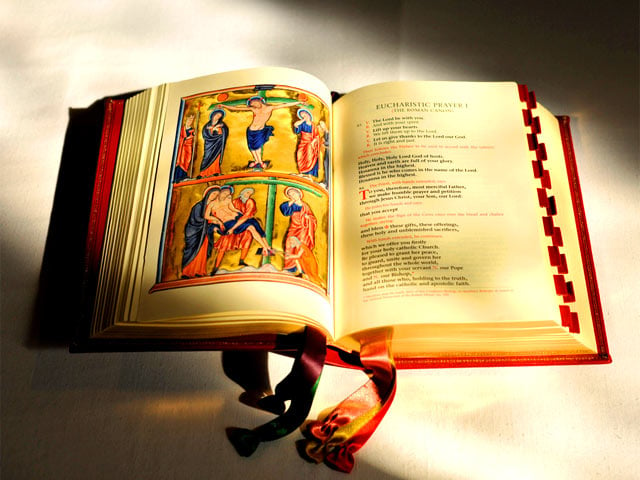- Home
- Our Community
- Our Faith
- Our Ministries
-
Parish Life
- Calendar of Events
- St. Aidan's Video Links
- Parish Blog
- News Archive
- Mass Etiquette and Information
- Ad Orientem News and Facts
- Catholic Links
- Prayers and Announcements
- Luis Dizon Reflections - Archive
- Bulletin
- Contact Us
- Search

When God Appears (16th Sunday in Ordinary Time)
Click here for the Sunday reading
In the Old Testament, God would occasionally appear in human form to His people for the purpose of accomplishing specific tasks. This is called a theophany. There are a few other such theophanies in scripture, such as Exodus 24:9-11, and Isaiah 6. These theophanies serve to show that God is not beyond coming down and appearing to His people directly rather than through an intermediary such as a prophet or angel. This is in contrast to certain religious ideas which posit God as being too transcendent to ever appear to His creation. The ultimate theophany, of course, is the Incarnation, when God takes human flesh and dwells among us as Jesus Christ (John 1:14).
In this reading, God appears to Abraham with two angels, who will go on to take part in the story of Sodom and Gomorrah. Abraham recognizes who it is that has come to him, since he refers to his guest as “Lord” (v. 3; see RSV/NRSV), and proceeds to provide the customary Middle Eastern hospitality. As Abraham entertains his guest, God then reveals to him that he will have a son. Here we see how God considered Abraham His friend (cf. Isaiah 41:8), since He chose to communicate the news of Abraham’s coming son to him directly. Jesus will refer to this event during His ministry, implying that He is the one who appeared to Abraham by the Oaks of Mamre (John 8:54-59).
We also see God’s faithfulness to His promise that Abraham will have numerous descendants, even after Abraham’s mistakes in previous chapters (e.g. lying about his wife to Pharaoh, and acquiescing to Sarah’s demand to impregnate and drive away Hagar), as well as Sarah’s incredulity (vv. 11-15). Abraham receives God’s promises in faith, and because of this is listed in the New Testament as one of the great heroes of faith for us to emulate (Hebrews 11:8-12). Even if God does not appear to us directly, we are nevertheless called to have the faith of Abraham, and thus become Abraham’s spiritual children (Galatians 3:29).
J. Luis Dizon
